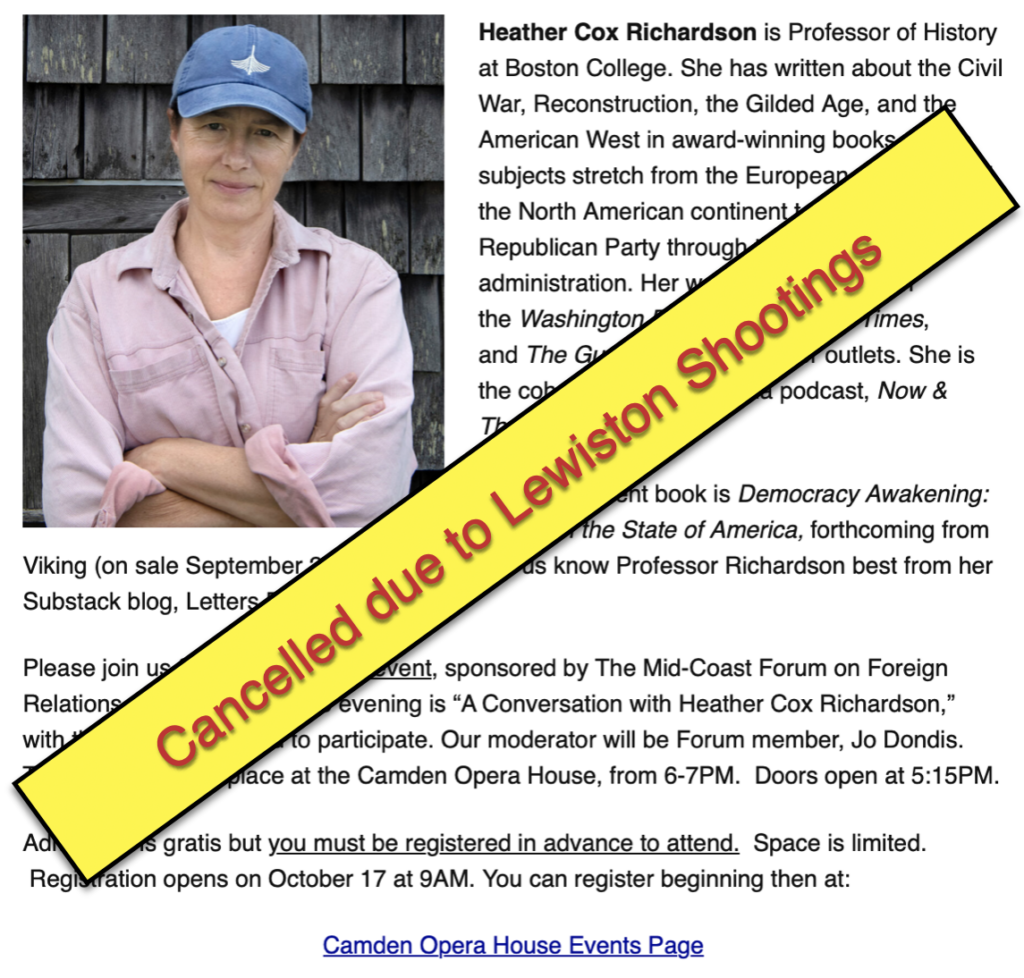The world is on the cusp of a dangerous new nuclear era, and the war in Ukraine might be a glimpse of what is to come. Reflecting this, the hands of the iconic Doomsday Clock, an indicator reflecting the opinion of the Bulletin of the Atomic Scientists as to how close humanity finds itself to self-destruction, were recently moved up 10 seconds — to 90 seconds to midnight. This is the closest they have ever been to Armageddon.
Speakers Archive for 2023
Two Essays by Ron Lehman
Lehman, Ron. “Sputnik-like Events: Responding to Technological Surprise.” In Strategic Latency: Red, White, and Blue — Managing the National and International Security Consequences of Disruptive Technologies edited by Zachary S. Davis and Michael Nacht, pp 33-51. Center for Global Security Research, Lawrence Livermore National Laboratory, 2016.
National security costs imposed by technological surprise can be immense. Take the case of Sputnik I,” the first man-made satellite. Launched by the Soviet Union on October 4, 1957, Sputnik—primarily a technology demonstration—humiliated a superpower, catalyzed mankind’s greatest national-security technology competition, encouraged risky geostrategic behavior, and transformed the world in ways that still shape our future. Few technological surprises match the impact of Sputnik, and like Sputnik, few are totally unexpected. Their consequences, however, are often not those anticipated.
To continue reading, click here.
Lehman, Ron. “Simplicity and Complexity in the Nth Nuclear Era.” In Cross-Domain Deterrence: Strategy in an Era of Complexity edited by Jon R. Lindsay and Erik Gartzke, pp 66-91. Oxford University Press, 2019.
Because separate expert organizations with distinct cultures inform nuclear, cyber, space and other special operations, perspectives often differ on strategy, capabilities, threats, and priorities. Thus, a comparative approach can provide interesting insights, analogies, and lessons learned, highlighting relative strengths and weaknesses. When confronted with the most challenging scenarios, however, an important defense policy goal is synergism between cross-domain and nuclear deterrence — a total deterrent greater than the sum of the parts.
To continue reading, click here.
Ambassador Nathaniel Fick
December 11, 2023
Topic: U.S. Leadership in Shaping the Future of Tech Diplomacy
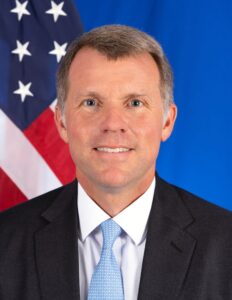 Nathaniel C. Fick was sworn in on September 21, 2022 as the inaugural U.S. Ambassador at Large for Cyberspace and Digital Policy.
Nathaniel C. Fick was sworn in on September 21, 2022 as the inaugural U.S. Ambassador at Large for Cyberspace and Digital Policy.
Prior to joining the State Department, Ambassador Fick was a technology executive and entrepreneur. He was CEO of the cybersecurity software company Endgame from 2012 through its acquisition by Elastic in 2019. Thereafter, he led Elastic’s information security business globally. Ambassador Fick spent nearly a decade as an operating partner at Bessemer Venture Partners, working with management teams to build technology businesses. In 2018, he was named by Fast Company magazine as one of the “100 Most Creative People in Business,” and Endgame was selected by Forbes as one of the “100 Best Cloud Companies in the World.”
From 2009 to 2012, Ambassador Fick was CEO of the Center for a New American Security, a national security research organization in Washington. Earlier in his career, he served as a Marine Corps infantry and reconnaissance officer, including combat tours in Afghanistan and Iraq. His book about that experience, One Bullet Away, was a New York Times bestseller, a Washington Post “Best Book of the Year,” and one of the Military Times‘s “Best Military Books of the Decade.”
Ambassador Fick graduated with high honors in Classics from Dartmouth College and holds an MPA from the Harvard Kennedy School and an MBA from the Harvard Business School.
Symposium: Advancing Cyber Diplomacy
Council on Foreign Relations, March 2023.
This symposium convenes senior government officials and experts from academia and the private sector to address the U.S. Department of State’s newly created Bureau of Cyberspace and Digital Policy, the goals of American cyber diplomacy, and how major public and private international stakeholders can advance global cyber cooperation amidst threats from authoritarian states like Russia and China. The symposium includes a keynote session with Ambassador Nathaniel Fick and as well as a session on Digital Diplomacy Around the World.
To watch the symposium (or read the transcript), click here.
John Deutch
November 13, 2023
Topic: Challenges to Future Climate Policy
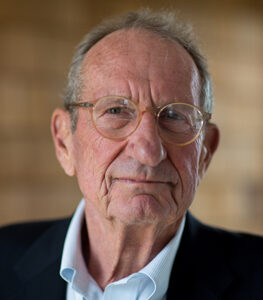 John Deutch is an emeritus Institute Professor at the Massachusetts Institute of Technology. Mr. Deutch has been a member of the MIT faculty since 1970, and has served as Chairman of the Department of Chemistry, Dean of Science and Provost. Mr. Deutch has published over 140 technical publications in physical chemistry, as well as numerous publications on technology, energy, international security, and public policy issues.
John Deutch is an emeritus Institute Professor at the Massachusetts Institute of Technology. Mr. Deutch has been a member of the MIT faculty since 1970, and has served as Chairman of the Department of Chemistry, Dean of Science and Provost. Mr. Deutch has published over 140 technical publications in physical chemistry, as well as numerous publications on technology, energy, international security, and public policy issues.
Deutch has served in significant government and academic posts throughout his career. In May 1995, he was sworn in as Director of Central Intelligence following a unanimous vote in the Senate, and served as DCI until December 1996. In this position, he was head of the Intelligence Community (all foreign intelligence agencies of the United States) and directed the Central Intelligence Agency. From March 1994 to May 1995, he served as the Deputy Secretary of Defense. From March 1993 to March 1994, Deutch served as Under Secretary of Defense for Acquisitions and Technology. From 1977 to 1980, Deutch served in a number of positions for the U.S. Department of Energy: as Director of Energy Research, Acting Assistant Secretary for Energy Technology, and Undersecretary of the Department.
In addition Deutch has served on many commissions during several presidential administrations. He has served on the President’s Nuclear Safety Oversight Committee (1980–81); the President’s Commission on Strategic Forces (1983); the White House Science Council (1985–89); the President’s Committee of Advisors on Science and Technology (1997–2001), the President’s Intelligence Advisory Board (1990–93); the President’ Commission on Aviation Safety and Security (1996); the Commission on Reducing and Protecting Government Secrecy (1996); and as Chairman of the Commission to Assess the Organization of the Federal Government to Combat the Proliferation of Weapons of Mass Destruction (1998–99).
John Deutch has received fellowships and honors from the American Academy of Arts and Sciences (1978) and Alfred P. Sloan Foundation (Research Fellow 1967–69), and John Simon Guggenheim Foundation (Memorial Fellow 1974–1975). Public Service Medals have been awarded him from the Department of Energy (1980), the Department of State (1980), the Department of Defense (1994 and 1995), the Department of the Army (1995), the Department of the Navy (1995), the Department of the Air Force (1995), the Coast Guard (1995), the Central Intelligence Distinguished Intelligence Medal (1996) and the Intelligence Community Distinguished Intelligence Medal (1996). He received the Greater Boston Federal Executive Board’s Speaker Thomas P. O’Neill Award for exemplary public service in 2002, the Aspen Strategy Group Leadership Award in 2004, and he was elected to the American Philosophical Society in 2007. He delivered the 2010 Godkin Lectures on the Essentials of Free Government and the Duties of the Citizen. He was a member of the National Petroleum Council (2008–2018) and chair of the Secretary of Energy Advisory Board (2012–2017).
John Deutch earned a B.A. in history and economics from Amherst College, and both the B.S. in chemical engineering and Ph.D. in physical chemistry from M.I.T. He holds honorary degrees from Amherst College, University of Lowell, and Northeastern University. He has served as director for the following publicly held companies: American Natural Resources, Citigroup, CMS Energy, Cummins Engine, Perkin-Elmer, Raytheon, SAIC, Schlumberger and Cheniere Energy. He is a trustee of Center of American Progress, Resources for the Future, the Massachusetts General Hospital Physician Organization, the Museum of Fine Arts, Boston, and the Skolkovo Institute. He has served on the board of the Urban Institute and the Council on Foreign Relations.
Is Net-Zero a Possible Solution to the Climate Problem?
, MIT Center for Energy and Environmental Policy Research, October, 2023.
Historically, the objective of climate policy has been to maintain the global average temperature increase under a specified level. Increasingly, countries and organizations today express the objective as a specific target date for reaching Net-zero emissions. Over ninety countries, including China and India, responsible for 80% of global greenhouse emissions have set Net-zero emission targets; the United States and the European Union have pledged to reach a Net-zero economy by 2050. This commentary explains why achieving global Net-zero is highly unlikely by any certain date and, even if achieved, will not necessarily solve the climate problem.
To continue reading, click here.
Heather Cox Richardson: Free Public Event
Thursday, October 26 at 6PM at THE CAMDEN OPERA HOUSE
Topic: Democracy Awakening: Notes on the State of America
Thomas Blanton
October 9, 2023
Topic: The Downsides of Government Secrecy
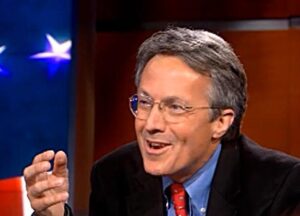 Tom Blanton is the director since 1992 of the independent non-governmental National Security Archive at George Washington University. He won the 2004 Emmy Award for individual achievement in news and documentary research, and on behalf of the Archive received the George Polk Award in 2000 for “piercing self-serving veils of government secrecy.” His books have been awarded the 2011 Link-Kuehl Prize from the Society for Historians of American Foreign Relations, selection by Choice magazine as “Outstanding Academic Title 2017,” and the American Library Association’s James Madison Award Citation in 1996, among other honors. The National Freedom of Information Act Hall of Fame elected him a member in 2006, and Tufts University presented him the Dr. Jean Mayer Global Citizenship Award in 2011 for “decades of demystifying and exposing the underworld of global diplomacy.” His articles have appeared in Diplomatic History, Foreign Policy, The New York Times, and the Washington Post, among many other journals; and he is series co-editor for the National Security Archive’s online and book publications of more than a million pages of declassified U.S. government documents obtained through the Archive’s more than 60,000 Freedom of Information Act requests.
Tom Blanton is the director since 1992 of the independent non-governmental National Security Archive at George Washington University. He won the 2004 Emmy Award for individual achievement in news and documentary research, and on behalf of the Archive received the George Polk Award in 2000 for “piercing self-serving veils of government secrecy.” His books have been awarded the 2011 Link-Kuehl Prize from the Society for Historians of American Foreign Relations, selection by Choice magazine as “Outstanding Academic Title 2017,” and the American Library Association’s James Madison Award Citation in 1996, among other honors. The National Freedom of Information Act Hall of Fame elected him a member in 2006, and Tufts University presented him the Dr. Jean Mayer Global Citizenship Award in 2011 for “decades of demystifying and exposing the underworld of global diplomacy.” His articles have appeared in Diplomatic History, Foreign Policy, The New York Times, and the Washington Post, among many other journals; and he is series co-editor for the National Security Archive’s online and book publications of more than a million pages of declassified U.S. government documents obtained through the Archive’s more than 60,000 Freedom of Information Act requests.
Shanthi Kalathil
September 11, 2023
Topic: The Challenges to Democracy in an Age of Misinformation
Shan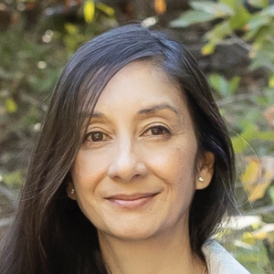 thi Kalathil is an advisor, consultant and speaker on national security, democratic resilience, and strategic competition in the information age. Under President Biden, Kalathil served as Deputy Assistant to the President and Coordinator for Democracy and Human Rights at the National Security Council, where she oversaw the organization of the inaugural Summit for Democracy and the development of the first U.S. Strategy on Countering Corruption, among other initiatives.
thi Kalathil is an advisor, consultant and speaker on national security, democratic resilience, and strategic competition in the information age. Under President Biden, Kalathil served as Deputy Assistant to the President and Coordinator for Democracy and Human Rights at the National Security Council, where she oversaw the organization of the inaugural Summit for Democracy and the development of the first U.S. Strategy on Countering Corruption, among other initiatives.
Before joining the Biden Administration, Kalathil was the senior director of the International Forum for Democratic Studies at the National Endowment for Democracy. Previously, she held positions at the US Agency for International Development and the Carnegie Endowment for International Peace, and consulted for the World Bank and other international affairs organizations. Kalathil has authored and edited numerous policy and scholarly publications, including Diplomacy, Development and Security in the Information Age (Institute for the Study of Diplomacy, Georgetown University, 2013) and (with Taylor C. Boas) Open Networks, Closed Regimes: The Impact of the Internet on Authoritarian Rule (Carnegie Endowment for International Peace, 2003). She was formerly a Hong Kong-based reporter for the Asian Wall Street Journal.
The Evolution of Authoritarian Digital Influence: Grappling with the New Normal
By Shanthi Kalathil, PRISM, October 21, 2020
As the world contends with the wide-ranging ramifications of the global COVID-19 pandemic, it has been simultaneously beset by the global information crisis, which mimics the shape of the pandemic itself in its viral effects across huge segments of the global population. Misinformation—unwittingly spread false information—is rampant. Overarching narratives, targeted propaganda, and particularly disinformation—the deliberate generation of false or misleading information designed to engender public cynicism or uncertainty—are being piped into the global information bloodstream in large quantities. While some of this comes from domestic political actors, determined authoritarian regimes and their proxies have been quick to seize this window of opportunity for asymmetric transnational impact. Many of those targeted, including governments, institutions, and segments of societies, have been too overwhelmed to respond effectively.
To continue reading, click here.
Ambassador Charles Ray
August 14, 2023
Topic: Why Africa Matters
A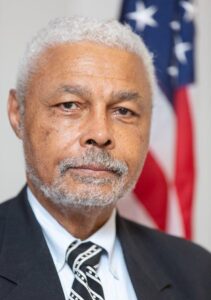 mbassador Charles A. Ray, a member of the Board of Trustees and Chair of the Africa Program at the Foreign Policy Research Institute, served as U.S. Ambassador to the Kingdom of Cambodia and the Republic of Zimbabwe. In addition, he was the first U.S. Consul General to Ho Chi Minh City, Vietnam, opening the Consulate General there in 1998.
mbassador Charles A. Ray, a member of the Board of Trustees and Chair of the Africa Program at the Foreign Policy Research Institute, served as U.S. Ambassador to the Kingdom of Cambodia and the Republic of Zimbabwe. In addition, he was the first U.S. Consul General to Ho Chi Minh City, Vietnam, opening the Consulate General there in 1998.
From 2006 to 2009, he served as Deputy Assistant Secretary of Defense for POW/Missing Personnel Affairs, responsible for DoD efforts to account for those missing in combat from World War II to the then current conflicts and for policy related to the rescue of personnel who become isolated, missing, or taken in service abroad.
During his diplomatic career, Mr. Ray served as deputy chief of mission in Freetown, Sierra Leone, and at consular posts in Guangzhou and Shenyang, China, and Chiang Mai, Thailand. He was diplomat-in-residence at the University of Houston during the 2005-2006 academic year; responsible for outreach and recruiting at colleges and universities in South Texas.
Prior to joining the Foreign Service in 1982, he served 20 years in the United States Army, with postings in Europe and Asia, including two tours in Vietnam during the war. He retired in 2012 from the Foreign Service and is now engaged in consulting, public speaking, and writing. He is the author of more than 30 works of fiction and nonfiction, including a historical series about the Buffalo Soldiers, the African-American soldiers who served on the western frontier, and is the author of an Amazon best-selling mountain man adventure series. His nonfiction works include books and articles on management, leadership, international relations, and history. He is the author of over 250 works of fiction and nonfiction.
Ray is currently a member of the board of directors of the American Academy of Diplomacy, communications director for the Association of Black American Ambassadors, a member of the American College of National Security Leaders, a member of the Washington Institute of Foreign Affairs, and a member of the board of directors of the Cold War Museum.
In addition to his government service, Mr.Ray has worked as a newspaper/magazine journalist, photographer, and artist, and was editorial cartoonist for the Spring Lake (NC) News, a weekly newspaper in central North Carolina during most of the mid to late-1970s.
He has a B.S. in business administration from Benedictine College, in Atchison, Kansas; an M.S. in systems management from the University of Southern California; and an M.S. in national security strategy from the National Defense University. In 2001, he received the Thomas Jefferson Award from American Citizens Abroad (ACA) for his work in support of American business in southern Vietnam.
Ambassador Charles Ray: Three articles on Why Africa Matters
Our August 2023 speaker, Ambassador Charles Ray, thought the following articles would provide a helpful background for his presentation on Why Africa Matters.
“Does Africa Matter to the United States?” by Charles A. Ray, Foreign Policy Research Institute, January 11, 2021.
Most Americans generally have one of two images of Africa: a primitive home of famine, disease, and civil war, or an idyllic motherland. Neither image is entirely correct. While Africa does have more than its fair share of problems and is the homeland of many Americans, it is a diverse continent of more than 50 nations and hundreds of ethnicities and languages; Africa is also the youngest continent in the world with a host of possibilities for the future. Other than those Americans of African ancestry, does this matter to the people of the United States? Should it matter? Why do we even need to ask this question? We rarely ever see articles about whether or not Europe or Asia matters to the United States. For a whole host of reasons, the answer to these questions is yes… To continue reading, click here.
“Cameroon: Africa’s Unseen Crisis” by Hermann A. Ndofor and Charles A. Ray, Foreign Policy Research Institute, May 9, 2022.
In terms of international attention, not all conflicts are equal. Some, like Russia’s war against Ukraine, receive the lion’s share of global media coverage and diplomatic engagement. Others, sadly, are ignored by the vast majority of foreign policy experts. The crisis in Cameroon, the site of one of the world’s unseen wars for nearly six years, falls into that latter category. This Central African country of 26 million people has been locked in a series of conflicts, ranging from fighting between the Francophone central government and Anglophone separatists in southern Cameroon to interethnic clashes in the country’s north. Killings, kidnappings, and internal displacement of people fleeing the violence, if left unchecked, could lead to another Rwanda-type catastrophe. Over 6,000 people have been killed and nearly one million people have already been displaced by the ongoing violence in the country. The presence of Boko Haram in the north, growing ties between Cameroon and Russia, and the recent introduction of the Kremlin-linked private military company, the Wagner Group, only adds fuel to an already volatile situation. To continue reading, click here.
“US-Africa Leaders Summit: New Beginning or Old Wine in a New Bottle? by Charles A. Ray, Foreign Policy Research Institute, December 22, 2022.
Delegates from forty-nine African countries and the African Union traveled to the United States to attend the US-Africa Leaders Summit earlier this month. Burkina Faso, Mali, Guinea, and Sudan were not invited because the African Union has suspended them over unconstitutional changes in government, and Eritrea was excluded because the United States does not currently have diplomatic relations with that nation. According to a senior Biden administration official, the summit was to focus on “deepening and expanding the long-term US-Africa partnership and advancing shared priorities, amplifying African voices to collaboratively meet this era’s defining challenges.” The United States announced major initiatives in the lead-up to the summit, which included US support for making the African Union a member of the G-20, and the promise of $55 billion to Africa over the next three years. This was the first US-Africa Leaders Summit since August 2014. While there was hope that the 2022 summit would reverse the decades of benign neglect of Africa in US policymaking, it was not without its skeptics. To continue reading, click here.
Thomas Ricks
July 10, 2023
Topic: First Principles: What America's Founders Learned from the Greeks and Romans and How That Shaped Our Country
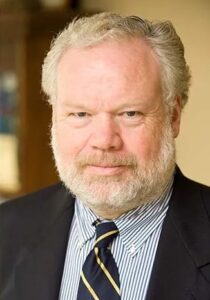 Thomas Ricks is an American journalist and author who specializes in the military and national security issues. Ricks covered the U.S. military for the Washington Post from 2000 through 2008. Until the end of 1999 he had the same beat at the Wall Street Journal, where he was a reporter for 17 years.
Thomas Ricks is an American journalist and author who specializes in the military and national security issues. Ricks covered the U.S. military for the Washington Post from 2000 through 2008. Until the end of 1999 he had the same beat at the Wall Street Journal, where he was a reporter for 17 years.
While at the Wall Street Journal, he was part of the team writing the “Price of Power” series discussing United States defense spending and potential changes confronting the US military following the Cold War. The series won the 2000 Pulitzer Prize for National Reporting. He won a second Pulitzer Prize for National Reporting as part of The Washington Post team for reporting about the beginnings of the U.S. counteroffensive against terrorism.
Ricks has reported on military activities in Somalia, Haiti, Korea, Bosnia, Kosovo, Macedonia, Kuwait, Turkey, Afghanistan, and Iraq. He previously wrote a blog for Foreign Policy called “The Best Defense” and he is a member of the Center for a New American Security, a defense policy think tank.
Ricks lectures widely to the military and is a member of Harvard University’s Senior Advisory Council on the Project on U.S. Civil-Military Relations. Ricks is the author of several nonfiction books including Making the Corps (1997); the bestselling Fiasco: The American Military Adventure in Iraq (2006) and its follow-up, The Gamble: General David Petraeus and the American Military Adventure in Iraq, 2006–2008 (2009); the bestselling First Principles: What America’s Founders Learned from the Greeks and Romans and How That Shaped Our Country (2020); and Waging a Good War: A Military History of the Civil Rights Movement, 1954-1968 (2022).
Born in Massachusetts, Ricks grew up in New York and Afghanistan and graduated from Yale in 1977.
‘It’s good to think strategically’: Thomas E Ricks on civil rights and January 6
By Martin Pengelly, The Guardian, October 8, 2022.
“There is a direct connection from Freedom Summer to the January 6 committee,” says Thomas E Ricks as he discusses his new book, Waging a Good War: A Military History of the Civil Rights Movement, 1954-1968. Freedom Summer was a 1964 campaign to draw attention to violence faced by Black people in Mississippi when they tried to vote. The House January 6 committee will soon conclude its hearings on the Capitol riot of 2021, when supporters of Donald Trump attacked American democracy itself.
But the committee is chaired by Bennie Thompson. In his opening statement, in June, the Democrat said: “I was born, raised, and still live in Bolton, Mississippi … I’m from a part of the country where people justify the actions of slavery, Ku Klux Klan and lynching. I’m reminded of that dark history as I hear voices today try and justify the actions of the insurrectionists of 6 January 2021.” Ricks is reminded of the insurrectionists as he retells that grim history. Watching the January 6 hearings, he says, he “was looking at Bennie Thompson. And I realised, his career follows right on. To continue reading, click here.
Amna Nawaz
June 10, 2023
Topic: On the Frontlines: Reporting Overseas and Here at Home
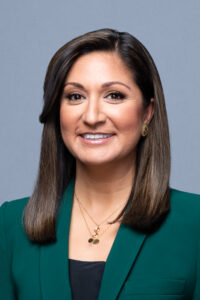 Amna Nawaz serves as co-anchor of PBS NewsHour. Prior to joining PBS NewsHour in April 2018, Nawaz was an anchor and correspondent at ABC News, anchoring breaking news coverage and leading the network’s livestream coverage of the 2016 presidential election. Before that, she served as foreign correspondent and Islamabad Bureau Chief at NBC News. She is also the founder and former managing editor of NBC’s Asian America platform, built in 2014, to elevate stories from America’s fastest-growing and most diverse population.
Amna Nawaz serves as co-anchor of PBS NewsHour. Prior to joining PBS NewsHour in April 2018, Nawaz was an anchor and correspondent at ABC News, anchoring breaking news coverage and leading the network’s livestream coverage of the 2016 presidential election. Before that, she served as foreign correspondent and Islamabad Bureau Chief at NBC News. She is also the founder and former managing editor of NBC’s Asian America platform, built in 2014, to elevate stories from America’s fastest-growing and most diverse population.
At the NewsHour, Nawaz has reported from the White House, across the country, and around the world on a range of topics including politics, immigration, foreign affairs, education, gun violence, criminal justice reform, the climate, culture, and sports. She also serves as an NBC News and MSNBC political contributor.
Throughout her career, she has covered major events such as the January 6th attacks on the U.S. Capitol; the mass shooting at Robb Elementary School in Uvalde, Texas; the elections and inaugurations of President Joe Biden, President Donald J. Trump, and President Barack Obama; Hurricane Katrina; the 2010 Haiti earthquake; the U.S. war in Afghanistan; and the September 11th attacks.
Nawaz has interviewed multiple heads of state and international leaders including Afghan President Ashraf Ghani, Turkish President Recep Tayyip Erdogan, and Belarusian opposition leader Sviatlana Tsikhanouskaya. She has interviewed government officials including Acting DHS Secretary Kevin McAleenan, ICE Director Mark Morgan, Dr. Anthony Fauci, and VA Secretary Denis McDonough. She has interviewed a variety of newsmakers including acclaimed director Ava Duvernay, actor Riz Ahmed, WNBA star Sue Bird, and country singer Reba McEntire.
On January 6, 2021, Nawaz reported live for several hours from outside the U.S. Capitol building as it was under attack, part of a NewsHour team honored with a Peabody Award for its coverage.
Nawaz previously won a Peabody for her documentary work on 2019’s “The Plastic Problem,” examining global plastic pollution and efforts to address it. Her other documentaries include “Raising the Future,” a 2021 documentary on America’s childcare crisis; and 2022’s “Life After Lockup,” which followed the lives of four formerly-incarcerated people to track the challenges of re-entry after prison.
In 2020, Nawaz hosted a criminal justice podcast, “Broken Justice,” which was named a finalist for the Silver Gavel Awards, honoring work that fosters the American public’s understanding of law and the legal system. She also hosted 2021’s “The Longest Year,” a pandemic-focused podcast series on the many ways Covid-19 changed Americans’ lives. Nawaz has hosted three seasons of the primetime PBS series, “Beyond the Canvas,” featuring profiles and interviews of some of the world’s leading artists, musicians, and creators.
In 2019, Nawaz became the first Asian American and the first Muslim American to moderate a presidential debate. While at ABC News, Nawaz hosted the documentary, “Roberts County: A Year in the Most Pro-Trump Town,” following four families’ lives over President Trump’s first year in office. She also hosted the podcast series, “Uncomfortable” for ABC News Radio, featuring in-depth, one-on-one conversations with thought leaders on the issues dividing America. While at NBC News, she was the first foreign journalist to gain access to North Waziristan – then the global hub of Al Qaida and the Taliban – while pregnant with her first daughter.
Nawaz was a Fall 2021 Fellow at Georgetown University’s Institute of Politics and Public Service. She is a member of the Council on Foreign Relations, the Asian American Journalists Association, the South Asian Journalists Association, and the Inter-American Dialogue. In 2022, Nawaz was the recipient of the Asian Pacific American Institute for Congressional Studies’ Vision Award and the Media Award from the Muslim Affairs Public Council’s Media Award. She has also been honored with the American Muslim Institution’s Excellence in Media Award in 2018 and an Emmy award as part the 2009 NBC News Special “Inside the Obama White House.”
She is the first-generation American daughter of Pakistani parents, born and raised in Virginia. Nawaz earned a bachelor’s degree from the University of Pennsylvania, where she captained the varsity field hockey team and studied abroad at the University of Zimbabwe. She later earned her master’s degree from the London School of Economics.
She lives with her husband, Paul, and their two daughters in the Washington, D.C. area.
Amna Nawaz Interviews & Reports
Our June 2023 speaker, Amna Nawaz, thought the following videos would provide a helpful background for her presentation On the Frontlines: Reporting Overseas and Here at Home.
Christopher Costa
May 8, 2023
Topic: Reflections on Counterterrorism and the Future Terrorism Threat
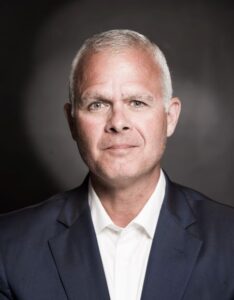 Christopher Costa was appointed as the Special Assistant to the President & Senior Director for Counterterrorism at the White House. Costa’s 35-year government career included 25-years in counterintelligence, human intelligence and with special operations forces (SOF) in the United States Army, in Central America, Europe, and throughout the Middle East. He ran a wide range of intelligence and sensitive operations in Panama, Bosnia, the first and second Iraq wars, and Afghanistan. Colonel Costa earned two bronze stars for sensitive human intelligence work in Afghanistan. Assigned to the Naval Special Warfare Development Group with Navy SEALs, he served as the first civilian squadron Deputy Director. In 2013, Costa was inducted into the United States Special Operation’s Commando Hall of Honor for lifetime service to US Special Operations.
Christopher Costa was appointed as the Special Assistant to the President & Senior Director for Counterterrorism at the White House. Costa’s 35-year government career included 25-years in counterintelligence, human intelligence and with special operations forces (SOF) in the United States Army, in Central America, Europe, and throughout the Middle East. He ran a wide range of intelligence and sensitive operations in Panama, Bosnia, the first and second Iraq wars, and Afghanistan. Colonel Costa earned two bronze stars for sensitive human intelligence work in Afghanistan. Assigned to the Naval Special Warfare Development Group with Navy SEALs, he served as the first civilian squadron Deputy Director. In 2013, Costa was inducted into the United States Special Operation’s Commando Hall of Honor for lifetime service to US Special Operations.
Costa has been a Senior Adjunct Instructor with Norwich University’s Bachelor of Science in Strategic Studies and Defense Analysis Program. In addition, he has taught terrorism-related courses at Eckerd College, ECPI University and Schenectady Community College. Costa has been an Adjunct Associate Professor for the Georgetown University Security Studies Program – Walsh School of Foreign Studies, since 2021. He has published articles in, Terrorism and Political Violence, and terrorism-related opinion pieces in the New York Times, Washington Post, Politico, Defense One, The Hill and the Washington Examiner. He has been interviewed as a subject matter expert on terrorism by BBC, ABC and Fox News. He holds an M.A. in Strategic Intelligence from American Military University; and an M.A. in National Security and Strategic Studies from the U.S. Naval War College; he earned a B.A. from Norwich University.
Costa has been the executive director of the International Spy Museum in Washington, DC, since 2018.
Christopher Costa: Two articles on future terrorism threats
Our May 2023 speaker, Christopher Costa, thought the following articles would provide a helpful background for his presentation on Counterterrorism and the Future Terrorism Threat.
The world has entered the fifth wave of anti-government terrorism,” by Christopher Costa, The Hill, January 12, 2023.
In light of a failed far-right coup in December in Germany, fueled by ideologically and historically incoherent fantasies, a global trend is coming into sharper focus. This new trajectory reveals a dangerous hybridization of extremist ideologies and is distinguished by anti-government terrorism… To continue reading, click here.
“Lone wolf terrorism is far from yesterday’s threat,” by Christopher Costa, The Hill, February 3, 2023.
A radicalized ISIS-inspired terrorist was convicted on a raft of charges by a federal jury and could now face the death penalty. The ISIS wannabe, Sayfullo Saipov, killed eight people in the deadliest terrorist attack in New York City since 9/11. He was a self-radicalized, lone wolf terrorist waging “leaderless jihad.” The facts that emerged in the aftermath of the attack are hauntingly familiar to me… To continue reading, click here.
Susan Landau
April 17, 2023
Topic: The Reality of Cyberwar – in Ukraine and Elsewhere
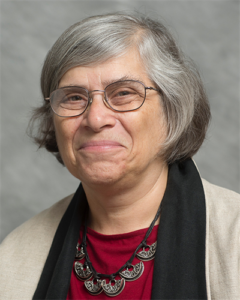 Susan Landau is Bridge Professor in Cyber Security and Policy at the Fletcher School and the School of Engineering’s Department of Computer Science at Tufts University and the founding director of the Tufts Master of Science program in Cybersecurity and Public Policy.
Susan Landau is Bridge Professor in Cyber Security and Policy at the Fletcher School and the School of Engineering’s Department of Computer Science at Tufts University and the founding director of the Tufts Master of Science program in Cybersecurity and Public Policy.
Landau served as a Senior Staff Privacy Analyst at Google, a Distinguished Engineer at Sun Microsystems, and a faculty member at Worcester Polytechnic Institute, the University of Massachusetts, and Wesleyan University. She was a Guggenheim Fellow and visiting scholar at the Computer Science Department of Harvard University and a Fellow at Harvard’s Radcliffe Institute for Advanced Study. She has been a fellow of the American Association for the Advancement of Science since 1999 and was inducted as a Fellow of the Association for Computing Machinery in 2011. Landau has testified before Congress on encryption, surveillance, and cybersecurity issues, including providing testimony in the FBI–Apple encryption dispute between 2015 and 2016.
Landau is an inductee in both the Cybersecurity Hall of Fame and the Information System Security Association Hall of Fame and was awarded the Anita Borg Institute Women of Vision Award for Social Impact in 2008. In 1989, she introduced the first algorithm for deciding which nested radicals can be denested, which is known as “Landau’s algorithm.” In 1972, her project on odd perfect numbers won a finalist position in the Westinghouse Science Talent Search.
Landau’s 2021 book, People Count: Contact-Tracing Apps and Public Health (MIT Press), focuses on efficacy, equity, and privacy. Landau is also the author of Listening In: Cybersecurity in an Insecure Age (Yale University Press, 2017), Surveillance or Security? The Risks Posed by New Wiretapping Technologies, (MIT Press, 2011) which won her the Surveillance Studies Network Book Prize, and Privacy on the Line: the Politics of Wiretapping and Encryption, co-authored with Whitfield Diffie (MIT Press, 1998). She is also the co-author of the report Keys Under Doormats: Mandating Insecurity by Requiring Government Access to All Data and Communications, which received the 2015 J. D. Falk Award from the Messaging Malware Mobile Anti-Abuse Working Group. The Obama administration gave substantial credit to this report’s analysis when it announced that it would not pursue exceptional access to phone data.
Outside of her technical work, Landau is interested in the issues of women in science, maintaining the ResearcHers email list, a “community dedicated to supporting women new to research in computing,” and an online bibliography of women’s writing in computer science.
Landau has a B.A. from Princeton University, an M.A. from Cornell University, and a Ph.D. in mathematics from the Massachusetts Institute of Technology.
Cyberwar in Ukraine: What You See Is Not What’s Really There
|
By Susan Landau Friday, September 30, 2022, 8:01 AM It has been seven months since Russia invaded Ukraine. Despite much speculation, many aspects of the war have ultimately not turned out as expected. The war wasn’t, as Russia had anticipated, a six-day rout—or even a six-month one. And notably, cyber didn’t, as some had predicted, play a major role in Russian efforts to take over Ukraine. Russia was expected to wage cyberattacks targeting critical infrastructure; its attacks, while sophisticated, have had less impact than envisioned. Meanwhile, even in the middle of what is turning out to be a more demanding war than Russian leadership had anticipated, Russia is focusing on a strategy of undermining the West through information warfare. This war has demonstrated strategic cyber issues below the surface, including the failure of effective cyberattacks occurring alongside kinetic offensives, Russia’s long-term use of information warfare, and effective collaboration between U.S. industry and the U.S. government in preventing the worst of the cyberattacks. These have important long-term implications for the international defense strategies of the United States and other Western democracies. [To continue click here. |
Jon Wolfsthal
March 27, 2023
Topic: Is a New Era of Nuclear Danger Upon Us?
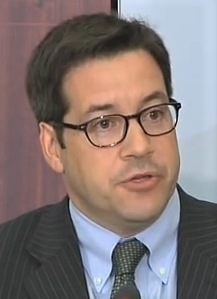 Jon Wolfsthal is a Senior Advisor for Policy & Advocacy at Global Zero and a fellow atUS Department of State International Security Advisor Board.
Jon Wolfsthal is a Senior Advisor for Policy & Advocacy at Global Zero and a fellow atUS Department of State International Security Advisor Board.
From 2014 to 2017, Wolfsthal served as Special Assistant to former U.S. President Barack Obama and as senior director for arms control and nonproliferation at the National Security Council. In that post, he was the most senior White House official, setting and implementing U.S. government policy on all aspects of arms control, nonproliferation, and nuclear policy. Prior to that, he served as the deputy director of the James Martin Center for Nonproliferation Studies at the Monterey Institute for International Studies.
From 2009 to 2012, Wolfsthal served as the special adviser to U.S. Vice President Joe Biden for nuclear security and nonproliferation and as director for nonproliferation on the National Security Council. He supported the Obama administration’s negotiation and ratification of the New START arms reduction agreement with the Russian Federation and helped support the development of nuclear policy, including the 2010 Nuclear Posture Review.
He was previously a senior fellow at the Center for Strategic and International Studies and deputy director of the Nuclear Policy Program at Carnegie Endowment for International Peace. He served in several capacities during the 1990s at the U.S. Department of Energy, including an on-the-ground assignment in North Korea from 1995 to 1996.
He is the co-author, with Joseph Cirincione, of Deadly Arsenals: Tracking Weapons of Mass Destruction and a leading authority on nuclear weapons policy, regional proliferation, arms control, and nuclear deterrence. His work has included assignments in Russia, North Korea, and travel to Iran. He is the author of dozens of scholarly articles and op-eds and has appeared on or been quoted in most leading domestic and international news media outlets.
Ukraine gave up nuclear weapons at our behest. Here’s what we owe them.
By Jon B. Wolfsthal, The Washington Post, February 10, 2023
Derek Mitchell
February 13, 2023
Topic: Democracy and International Security
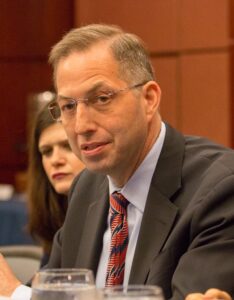 Derek Mitchell became president of the National Democratic Institute (NDI) in 2018, returning over two decades after he departed the Institute in 1997, at the conclusion of nearly four years as Senior Program Officer for Asia and the former Soviet Union.
Derek Mitchell became president of the National Democratic Institute (NDI) in 2018, returning over two decades after he departed the Institute in 1997, at the conclusion of nearly four years as Senior Program Officer for Asia and the former Soviet Union.
Since that time, Mitchell has had a distinguished career in and out of the U.S. government, in which he has witnessed the connection between democracy and international security.
From 2012-2016, Mitchell served as U.S. Ambassador to the Republic of the Union of Myanmar (Burma). He was America’s first ambassador to the country in 22 years. From 2011-12, he served as the U.S. Department of State’s first Special Representative and Policy Coordinator for Burma, with the rank of ambassador.
Prior to this appointment, Mitchell served as Principal Deputy Assistant Secretary of Defense, Asian and Pacific Security Affairs (APSA), in the Office of the Secretary of Defense. In that capacity, he spent six months as acting APSA Assistant Secretary of Defense, and was responsible for overseeing the Defense Department’s security policy in Northeast, Southeast, South, and Central Asia. For his service, he received the Office of the Secretary of Defense Award for Distinguished Public Service in August 2011.
From 2001 to 2009, Mitchell served as Senior Fellow and Director of the Asia Division of the International Security Program at the Center for Strategic and International Studies (CSIS). From 1997 to 2001, he served as Special Assistant for Asian and Pacific Affairs in the Office of the Secretary of Defense. Mitchell was the principal author of the Department of Defense’s 1998 East Asia Strategy Report, the last such report produced by DoD.
Mitchell began his work in Washington as a foreign policy assistant in the office of Senator Edward M. Kennedy (D-MA) from 1986-88. Most recently, Mitchell has been a senior advisor at the Albright Stonebridge Group, the United States Institute of Peace, and the Center for Strategic and International Studies, as well as a lecturer for the Stanford-in-Washington program.
Mitchell has authored numerous books, articles, policy reports, and opinion pieces on international affairs. He is the coauthor of China: The Balance Sheet—What the World Needs to Know Now about the Emerging Superpower (2006), and China and the Developing World: Beijing’s Strategy for the 21st Century (2007).
Mitchell received a Master of Arts in Law and Diplomacy from the Fletcher School at Tufts University and a Bachelor’s Degree from the University of Virginia. He was a visiting scholar at Peking University in 2007. He speaks Mandarin Chinese proficiently.
Mitchell lives in Washington, D.C. with his wife Min, a former television journalist.
Derek Mitchell: Three articles on democracy and international security
Ambassador Derek Mitchell thought the following three articles would provide a helpful background for his February 2023 presentation on Democracy and International Security.
“The Ground Game: Supporting Democracy Must Be Part of America’s Global Strategy,” by Derek Mitchell, The Hill,
Today’s International Day of Democracy offers an opportunity to review the state of global democracy and also democracy’s essential, if often overlooked role, in U.S. global strategy. Russia’s invasion of Ukraine, along with China’s and Russia’s freshly minted “no limits” partnership, emerging alliance with brutal authoritarians around the world, and unapologetic affirmation of illiberal values at home and abroad, validate the Biden administration’s view that the contest between democracy and autocracy is a defining challenge of our times… To continue reading, click here.
“All Democracy Is Global: Why America Can’t Shrink from the Fight for Freedom,” by Larry Diamond, Foreign Affairs, September/October 2022
The world is mired in a deep, diffuse, and protracted democratic recession. According to Freedom House, 2021 was the 16th consecutive year in which more countries declined in freedom than gained. Tunisia, the sole democracy to emerge from the Arab Spring protests that began in 2010, is morphing into a dictatorship. In countries as diverse as Bangladesh, Hungary, and Turkey, elections have long ceased to be democratic… To continue reading, click here.
“The Bad Guys Are Winning,” by Anne ApplebaumAtlantic, November 15, 2021
The Future of Democracy may well be decided in a drab office building on the outskirts of Vilnius, alongside a highway crammed with impatient drivers heading out of town. I met Sviatlana Tsikhanouskaya there this spring, in a room that held a conference table, a whiteboard, and not much else. Her team—more than a dozen young journalists, bloggers, vloggers, and activists—was in the process of changing offices. But that wasn’t the only reason the space felt stale and perfunctory… To continue reading, click here.
Admiral Michael Rogers
January 9, 2023
Topic: Russia-Ukraine: how did we get here and what does it portend for the future?
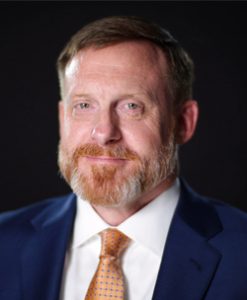 Admiral Michael Rogers retired from the US Navy in 2018 after nearly 37 years of naval service rising to the rank of four-star admiral. He culminated his career with a four-year tour as Commander, US Cyber Command and Director, National Security Agency. In those roles he worked with the leadership of the US government, the DoD, and the US Intelligence community as well as their international counterparts in the conduct of cyber and intelligence activity across the globe. He also assisted in the development of national and international policy with respect to cyber, intelligence and technology – including extensive work with corporate leadership in the Finance, IT, Telecommunications and Technology sectors.
Admiral Michael Rogers retired from the US Navy in 2018 after nearly 37 years of naval service rising to the rank of four-star admiral. He culminated his career with a four-year tour as Commander, US Cyber Command and Director, National Security Agency. In those roles he worked with the leadership of the US government, the DoD, and the US Intelligence community as well as their international counterparts in the conduct of cyber and intelligence activity across the globe. He also assisted in the development of national and international policy with respect to cyber, intelligence and technology – including extensive work with corporate leadership in the Finance, IT, Telecommunications and Technology sectors.
During his broader service in uniform, Admiral Rogers held positions afloat and ashore around the globe focusing on cyber, intelligence, maritime operations and national security. His joint service was extensive including duty with the Chairman of the Joint Chiefs of Staff, the Joint Chiefs of Staff, US Indo Pacific Command and US Atlantic Command. In addition, Admiral Rogers commanded at the unit, Numbered Fleet and service component levels in the Navy.
Admiral Rogers is a graduate of Auburn University and also holds a Masters of Science in National Security. He is a distinguished graduate of the National War College and a graduate of highest distinction from the Naval War College. He is also an MIT Seminar XXI fellow and a Harvard Senior Executive in National Security alum.
Admiral Rogers is currently supporting companies in the private sector, serving as a member of various Boards or acting as a Senior Advisor. He also speaks globally to various business and academic groups and is working internationally in the cyber and national security arenas. He is a Senior Fellow and Adjunct Professor with Northwestern University’s Kellogg School of Managements’ Public Private Initiative and a member of the advisory board of Auburn University’s McCrary Institute for Cyber and Critical Infrastructure.
